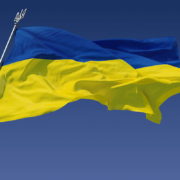The Minister for Justice has published the details of the new scheme which will open on Monday 31st January 2022, enabling undocumented migrants to apply to regularise their immigration status in the State.
The scheme will be open for applications from 31st January 2022 until 31st July 2022, a period of six months.
The qualifying criteria has now been published on the Irish Immigration website which distinguishes between four types of applications which can be made under the scheme. It is worthy to note that Applicants are to meet the qualifying criteria by the 31st January 2022, the date that the scheme opens and not during the six month period.
The four types of applications which can be made, and the period of residency required are set out as follows:
1) Single Application
In order to qualify for the scheme as a single applicant, you are required to be over the age of 18 and have been living in the State undocumented continuously for the last four years.
2) Family Application (Couple)
The principal applicant who is applying for themselves and their spouse/civil partner/de facto pattern must have resided in the State undocumented continuously for the last four years whilst the spouse/partner must have resided in the State undocumented continuously for the last two years.
3) Family Application with at least one dependent minor child
The principal applicant must have resided in the State undocumented continuously for the last three years.
The spouse/partner and any dependent children between the ages of 18 -23 must have resided in the State undocumented continuously for the last two years whilst living with the principal applicant for the last two years and continue to live as a family unit at the time of application.
Dependent children under the age of 18 must have been residing in the State with the principal applicant immediately prior to the publication of the scheme on 13th January 2022.
4) Family Application with at least one dependent adult child
The principal applicant must have resided in the State undocumented continuously for the last four years.
The spouse/partner and any dependent adult child between the ages of 18 -13 must have resided in the State undocumented continuously for the last two years whilst living with the principal applicant for the last two years and continue to live as a family unit at the time of application.
Other children over the age of 23 or are themselves married/ in a partnership must make an application in their own right, even if still residing with the principal applicant in the same family unit.
Where a child is over the age of 23 and living with a disability or is unable to live alone, applicants should contact [email protected] prior to submitting an application.
Persons who currently hold immigration status or who having a pending IPO application are ineligible for the scheme and cannot apply.
Applications fees apply and details of same can be found in the below links. Those who wish to apply may now view the detailed guidance and the list of documents required to make an application. The specific questions/application form does not yet appear to be available.
Berkeley Solicitors greatly welcomes the publishment of the new scheme which will provide the opportunity to thousands of people across Ireland to regularise their immigration status in Ireland.
If you or a family member have queries about the process for applying under the new scheme, please do not hesitate to contact our office.
Further details of the full scheme can be found at the following links:
https://www.irishimmigration.ie/regularisation-of-long-term-undocumented-migrant-scheme/
https://www.irishimmigration.ie/wp-content/uploads/2022/01/Undocumented-Policy-Scheme-January-2022.pdf





